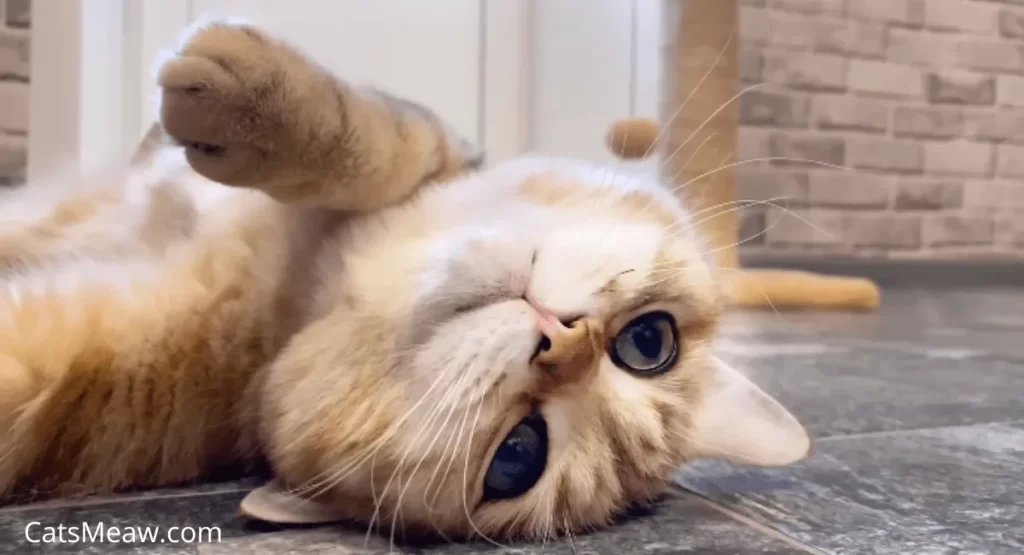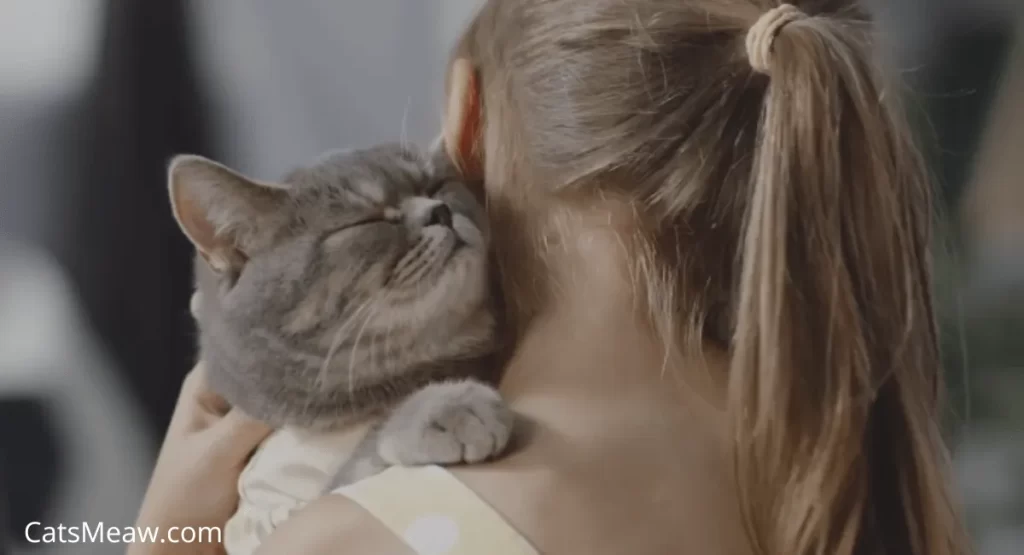Cats are among the most fascinating animals on the planet, and one of their most captivating traits is purring. This soothing, rhythmic sound is something cat lovers adore, but many don’t fully understand. While purring is often associated with happiness, it serves various other purposes in a cat’s life. From expressing contentment to promoting healing, purring is far more complex than it seems. In this article, we’ll dive into five key reasons why do cats purr? and uncover the mysteries behind this unique feline behavior.

Table of contents
1. Contentment and Relaxation
The most well-known reason cats purr is to express happiness and relaxation. When your feline companion curls up in your lap, closes their eyes, and begins to purr softly, it’s a clear sign that they feel safe and content. Purring is their way of communicating trust and comfort with their surroundings.
Cats often purr in situations that bring them joy or relaxation. For example, they may purr when being petted, when you’re talking to them gently, or when they’re enjoying a warm nap in the sun. The soothing vibrations not only help the cat feel relaxed but also have a calming effect on their human companions. This is why many cat owners describe feeling at ease when their pet purrs near them.
Interestingly, cats may also purr to encourage you to continue doing something they enjoy, such as stroking their fur or playing with them. This behavior strengthens the bond between you and your furry friend.
2. Communication with Kittens and Humans
Purring begins early in a cat’s life, even before their eyes open. Newborn kittens purr to signal their presence to their mother, helping her locate them for nursing and care. The mother cat also purrs during this time, creating a comforting and safe environment for her litter.
As cats grow older, they use purring as a form of communication with humans and other cats. For instance, they may purr to greet you, seek attention, or even ask for food. Some cats develop a special type of purring known as the “solicitation purr.” This purr is often accompanied by a subtle meow and is uniquely designed to grab your attention. It’s no coincidence that many humans find this sound impossible to ignore—it’s as if cats have perfected their communication to tug at our heartstrings.
Cats also purr to build emotional connections with their owners. By purring during affectionate moments, they show their appreciation and reinforce their bond with you.
3. Coping Mechanism for Stress and Pain
While purring is often linked to happiness, it also plays a crucial role in helping cats cope with stress or discomfort. When cats feel scared, anxious, or in pain, they may purr to calm themselves. This behavior acts as a natural coping mechanism, releasing endorphins that help reduce stress and alleviate pain.
Our pick: Best Cat Grooming Supplies
For example, a cat may purr while visiting the vet or recovering from an injury. This self-soothing behavior is a remarkable survival trait that allows cats to remain calm in challenging situations. By observing when your cat purrs, you can often gauge their emotional state and provide the comfort they need.
4. Purring’s Healing Properties
Beyond its emotional benefits, purring has physical healing properties that benefit cats in extraordinary ways. Scientific studies suggest that the frequency of a cat’s purr, typically between 25 and 150 Hertz, is beneficial for promoting tissue repair and bone health. This frequency range is known to stimulate healing and reduce inflammation, making purring an incredible natural tool for recovery.

Cats may instinctively purr to help themselves heal after an injury or surgery. The vibrations produced by their purring can also improve bone density, which is particularly helpful for older cats or those with physical ailments. This unique feature of purring is one of nature’s many wonders, showcasing how cats have evolved to support their own well-being.
5. Strengthening Social Bonds
Purring plays an essential role in building and maintaining social bonds. When cats groom each other, cuddle, or play, they often purr to express trust and companionship. This behavior is particularly noticeable in multi-cat households, where purring can indicate harmony and mutual comfort.
Related: Cat Twitching in Sleep
The same applies to cats’ interactions with humans. When your cat purrs while sitting close to you or kneading your lap, they’re not only expressing their own happiness but also fostering a deeper connection with you. This bonding behavior is one of the many reasons why purring is such a cherished aspect of feline life.
Purring also helps reduce tension during social interactions. For example, a cat may purr while approaching another cat or even a human to signal that they come in peace. This gentle form of communication helps establish trust and avoids conflict.
The Science Behind Purring
While we know a lot about the reasons cats purr, the mechanism behind it is equally fascinating. Purring is produced by the movement of a cat’s laryngeal muscles and diaphragm, which create vibrations as they breathe in and out. This sound is unique to domestic cats and a few other feline species, making it a rare and intriguing trait in the animal kingdom.
Despite advancements in research, some aspects of purring remain a mystery. For instance, scientists are still exploring why certain cats purr more frequently than others and why only some feline species have developed this ability. These unanswered questions add to the charm and intrigue of purring.
Understanding Why Do Cats Purr
As a cat owner, understanding the context of your cat’s purring can help you better interpret their emotions and needs. Pay attention to their body language, environment, and other vocalizations to determine why they’re purring. For example, if your cat is purring while lying on their favorite cushion, it’s likely a sign of relaxation. On the other hand, if they’re purring at the vet or after an accident, it could indicate a need for comfort or pain relief.
Recognizing these cues allows you to respond appropriately, whether that means offering more affection, providing a quiet space, or seeking veterinary care. By observing your cat’s behavior, you can deepen your bond and ensure they feel supported in all situations.
Conclusion
Purring is one of the most remarkable behaviors of cats, serving multiple purposes that range from expressing happiness to promoting healing. The five reasons why cats purr—contentment, communication, stress relief, physical healing, and social bonding—highlight just how unique and multifaceted this behavior is. Whether your cat is purring in your lap or during a stressful moment, it’s their way of connecting with the world and ensuring their own well-being.
As a cat lover, take time to observe and appreciate your feline friend’s purring habits. Share your experiences and insights on catsmeaw.com, and let’s celebrate the wonders of our purring companions together.
